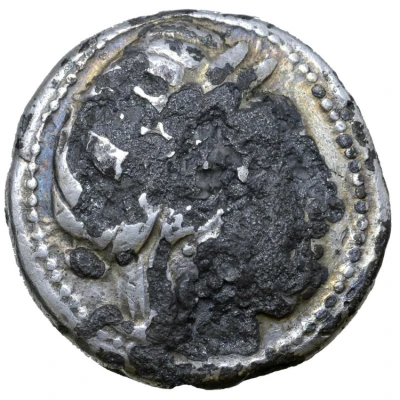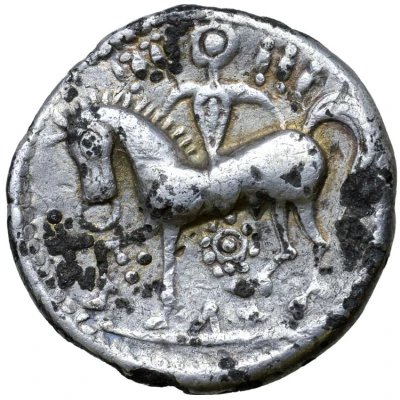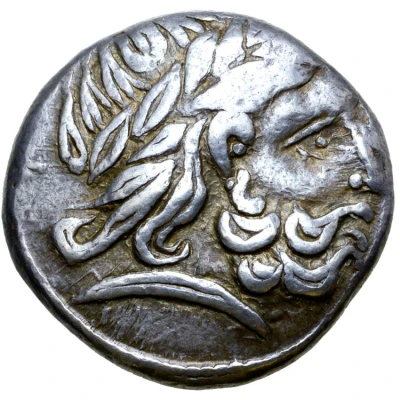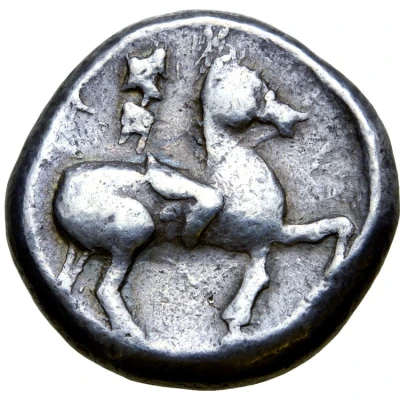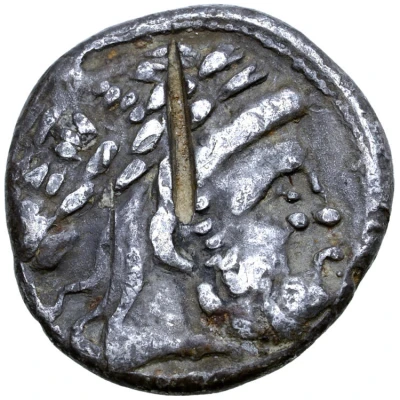
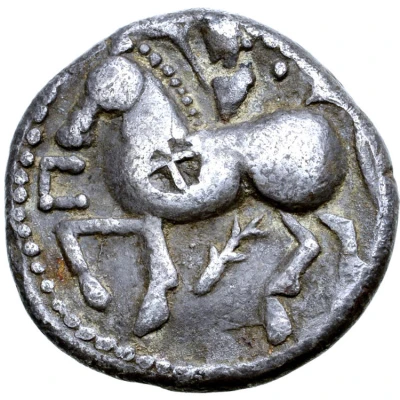

© Roma Numismatics Limited
Tetradrachm Wheel Countermark Type 300 BC - 201 BC
| Silver | 10.48 g | 23 mm |
| Issuer | Uncertain Eastern European Celts (Uncertain Central and Eastern European Celts) |
|---|---|
| Type | Standard circulation coin |
| Years | 300 BC - 201 BC |
| Value | Tetradrachm (4) |
| Currency | Drachm |
| Composition | Silver |
| Weight | 10.48 g |
| Diameter | 23 mm |
| Shape | Round (irregular) |
| Technique | Hammered, Countermarked |
| Orientation | Variable alignment ↺ |
| Demonetized | Yes |
| Updated | 2024-10-09 |
| Numista | N#190329 |
|---|---|
| Rarity index | 100% |
Reverse
Rider on horseback to left; Π before, branch below, wheel-countermark on horse.
Comment
Göbl, OTA pl. 9, 72/2;History of the piece in the main image (1h):
• Ex-Hermann Lanz Collection; published in Kostial #394;
• Exhibited by the Staatlichen Münzsammlung München at the 1997 International Numismatic Congress in Berlin; at the Berliner Bank also in 1997; also exhibited at the Luitpoldblock Palmengarten, Munich in 2003 (exhibition #73[reverse]).
Recorded Auctions:
• Roma Numismatics Ltd, Auction XVIII, 29 September 2019, lot 103. Sold for 120 GBP in VF grade, with test cut on obverse.
Interesting fact
One interesting fact about this coin is that it features a unique countermark, known as the "wheel countermark," which was used by the Celts to validate the authenticity of the coin. This countermark is a stylized wheel with four or six spokes, and it was stamped onto the coin after it was minted. The use of this countermark suggests that the Celts had a sophisticated system of currency authentication, which helped to prevent counterfeiting and maintain the value of their coins.
